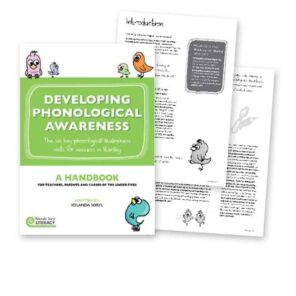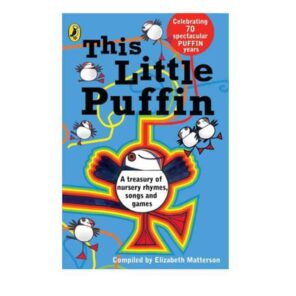For parents with children under 5
It matters what children do before they start school.
Here are Yolanda’s tips for setting children up for success in literacy before they learn to read.
Your young child is listening to everything you say and learning an incredible amount from the experiences you provide. Just because a baby cannot talk to you or seems to be oblivious to these activities, do not assume such activities are a waste of time. These activities shared every day will have a powerful impact on their developing brain. As your child grows, they will continue to develop their brain with more active participation in these experiences with you.
Yolanda’s key strategies for setting up the Under 5’s for later success in literacy.
Develop phonological awareness
It has been shown repeatedly that children who start school with good phonological awareness have better literacy outcomes.
Here are some easy and fun ways to help develop phonological awareness for your child:
Listen to music, nursery rhymes, and songs for children (Yolanda recommends Tessarose and Love to Sing).
When reading, talk about the stories, point to the pictures, make the noises of the animal characters (Yolanda recommends Eardrops).
Use sound lotto games such as Listening Lotto and Sound Tracks to develop a wide repertoire of known sounds.
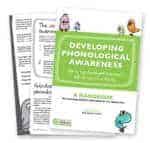 Top tip: Yolanda’s book Developing Phonological Awareness is packed with quick practical activities you can do with your child from birth. Parents are also welcome to take part in a Developing Phonological Awareness training webinars with Yolanda to learn how to effectively develop phonological awareness with their child.
Top tip: Yolanda’s book Developing Phonological Awareness is packed with quick practical activities you can do with your child from birth. Parents are also welcome to take part in a Developing Phonological Awareness training webinars with Yolanda to learn how to effectively develop phonological awareness with their child.
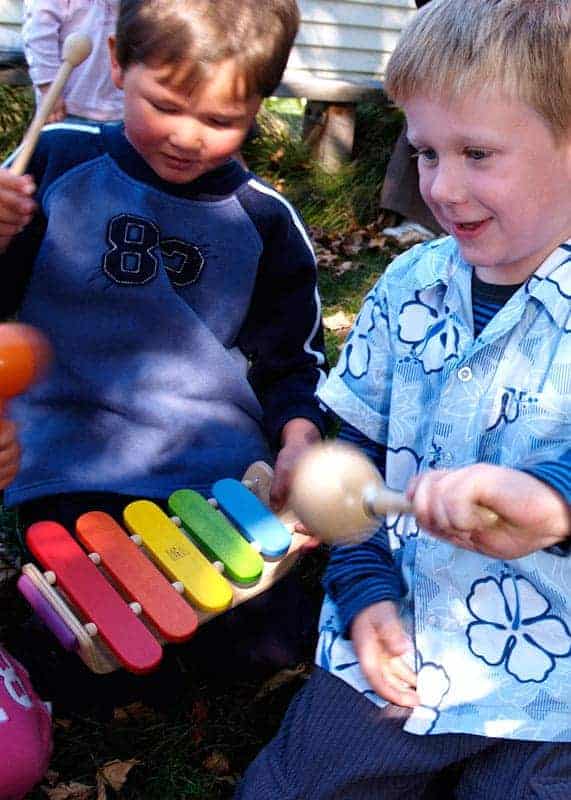
Develop graphic knowledge
The skills required to be able to visually discriminate between words are laid down well before children read their first book. Games and activities where children must use visual information to match or separate one item from another visually will hone this skill.
Teach your child the principle of ‘same same’:
Smart Tray with the Early Accelerator card system.
Did you know that children can learn to read their name from the age of two years, if not earlier?
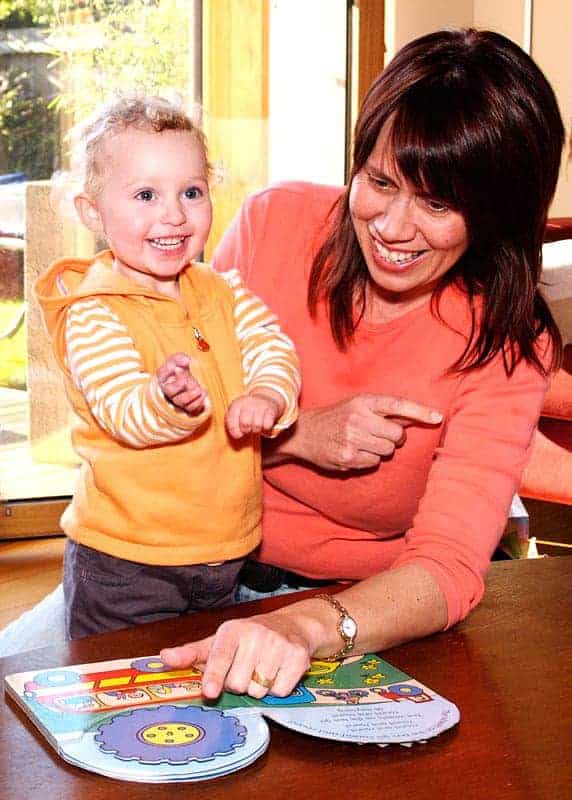
Develop oral language.
Talking to and with your child from birth is vitally important. Many studies have shown that the quantity of language spoken to the child predicts their later vocabulary and progress in literacy.
Have conversations. Talk about stories, people, places. Talk talk talk and read, read, read.
Reading to children
Start at birth and continue until they leave home. There is no reason to stop reading to your child. Did you know that children’s picture books have three times more interesting words in them than the conversation of university graduates? Building vocabulary early has long-term positive benefits for young readers.
Reading to children extends vocabulary, oral language, phonological awareness and opens the world for children. Read at least five stories over the day with your child. Also include rhymes and poems.
THE CHECKLIST:
Yolanda’s favourite books for babies and toddlers
Hairy Maclary, Lynley Dodd
We’re going on a bear hunt, Michael Rosen & Helen Oxenbury
My cat likes to hide in boxes, Eve Sutton
Brown bear, brown bear, what do you see?, Bill Martin Jnr
Each peach, pear, plum, Janet & Allan Ahlberg
An anthology of nursery rhymes such as This Little Puffin
Yolanda’s favourite books for pre-schoolers
Farmer Duck, Martin Waddell
The Gruffalo, Julia Donaldson
Animalia, Graeme Base
The Story of Ferdinand, Munro Leaf
Dr. Seuss books
plus classic traditional tale books
-
Developing Phonological Awareness
$25.00In stock
-
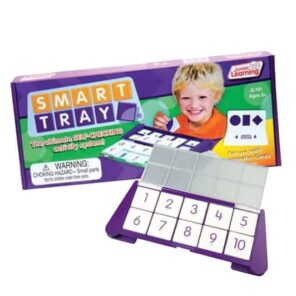 View options This product has multiple variants. The options may be chosen on the product page
View options This product has multiple variants. The options may be chosen on the product pageSmart Tray
$14.99 – $164.00In stock
-
This Little Puffin: A Treasury of Nursery Rhymes
$19.99Out of stock

